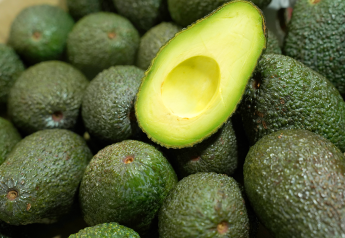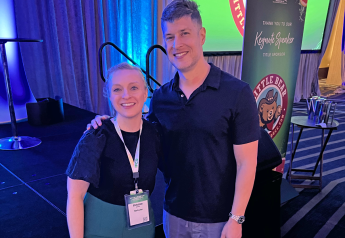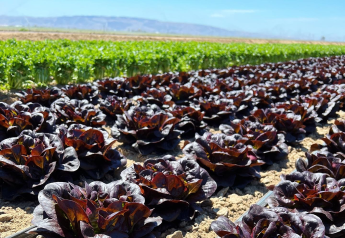Labor contractor sentenced for forced labor conspiracy of H-2A workers

Bladimir Moreno, owner of farm labor contracting business Los Villatoros Harvesting LLC, has been sentenced for leading a federal racketeering and forced labor conspiracy that targeted Mexican H-2A agricultural workers in the U.S. between 2015 and 2017, the Department of Justice recently announced.
On Dec. 29, U.S. District Court Judge Charlene Edward Honeywell of the Middle District of Florida sentenced Moreno to 118 months in prison along with three years of supervised release and ordered him to pay over $175,000 in restitution to the victims.
According to court documents, Moreno owned, operated and managed LVH — a farm labor contracting company that brought large numbers of temporary, seasonal Mexican workers into the U.S. on H-2A agricultural visas — as a criminal enterprise. According to the Justice Department, Moreno compelled victims to work in Florida, Kentucky, Indiana, Georgia and North Carolina, and he also engaged in a pattern of racketeering activity that included visa fraud and fraud in foreign labor contracting.
“Human trafficking, including forced labor campaigns that exploit vulnerable workers, is unlawful, immoral and inhumane,” the Justice Department’s Civil Rights Division Assistant Attorney General Kristen Clarke said in a news release. “This defendant abused his power as a business owner to capitalize on the victims’ vulnerabilities and immigration status, luring those seeking a better quality of life with false promises of lawful work paying a fair wage.”
Moreno made false statements in applications to federal agencies for LVH to be granted temporary, H-2A agricultural workers, according to the release. Moreno and his co-conspirators also made false promises to Mexican farm workers themselves to encourage them to work for LVH and then later charged these workers inflated sums to come into the U.S. on H-2A visas, according to the Justice Department.
Once the immigrants arrived in the U.S., Moreno and his co-conspirators coerced over a dozen of them into providing long hours of physically demanding agricultural labor, six to seven days a week, for unreasonably little pay, according to the Justice Department, which said Moreno and his co-conspirators used various forms of coercion, including tactics such as:
-
Imposing debts on the workers.
-
Confiscating their passports.
-
Subjecting them to crowded, unsanitary and degrading living conditions.
-
Harboring them in the U.S. after their visas had expired.
-
Threatening them with arrest and deportation if they failed to comply with demands.
“The defendant forced Mexican agricultural workers to labor under inhumane conditions, confiscated their passports, imposed exorbitant fees and debts, and threatened them with deportation or false arrest. The Department of Justice is committed to seeking justice for survivors of forced labor campaigns, holding perpetrators accountable and stripping wrongdoers of their illegal profits,” Clarke said in the release.
Later, to conceal the criminal enterprise from federal investigators, Moreno created and provided to investigators fraudulent records with falsified information about the workers’ pay and hours, and repeatedly made false statements to federal investigators, according to the Justice Department.
Stemming human trafficking in agriculture
“Forcing individuals to work against their will using abusive and coercive tactics is not only unconscionable but illegal,” U.S. Attorney Roger Handberg for the Middle District of Florida said in the release. “We will continue to work with our task force partners to combat human trafficking in all its forms, including prosecuting those who exploit vulnerable workers.”
The Palm Beach County Human Trafficking Task Force, which includes the FBI, Homeland Security Investigations and the Palm Beach County Sheriff’s Office, investigated the case.
Related news: Congress fails to pass farm labor reforms in omnibus spending bill
The Task Force received assistance from the Department of Labor Office of the Inspector General; the Department of Labor's Wage and Hour Division; the Department of State Diplomatic Security Service; the Coalition of Immokalee Workers; Colorado Legal Services' Migrant Farm Worker Division; Legal Aid Services of Oregon's Farmworker Program; and the Indiana Legal Services Worker Rights and Protection Project.
“This is not the first federal prosecution for forced labor that the Coalition of Immokalee Workers has uncovered and helped investigate, but the thirteenth,” CIW co-founder Lucas Benitez told The Packer. “The truth is, modern-day slavery remains a systemic problem in agriculture, and that problem is only going to continue to grow with the expansion of the H-2A program. But the good news is, it is not a problem without a solution.”
Programs like the Fair Food Program could stem long-standing labor abuses like forced labor and sexual harassment, he continued.
“If all major buyers of produce were to join the Fair Food Program and require their suppliers to meet its basic human rights standards — just as all major buyers require their suppliers to meet basic food safety standards — the market for the produce harvested without regard to U.S. law and fundamental human rights would dry up overnight, and forced labor rings like that run by Bladimir Moreno and his associates would have nowhere to operate,” Benitez said.
Anyone can report information about human trafficking to the toll-free National Human Trafficking Hotline at 1-888-373-7888. The hotline is open 24 hours a day, seven days a week.
Sentencing the conspirators
Moreno was charged in September 2021 and pleaded guilty earlier this year to conspiracy under the Racketeer Influenced and Corrupt Organizations Act and conspiracy to commit forced labor, according to the release. Two of Moreno’s co-defendants previously pleaded guilty to conspiracy under RICO, and a third co-defendant, Guadalupe Mendes, pleaded guilty to conspiring to obstruct a federal investigation, the Justice Department said. They were sentenced in October 2022.
Efrain Cabrera Rodas, a citizen of Mexico who worked for LVH as a recruiter, manager and supervisor, received 41 months in prison. Christina Gamez, a U.S. citizen who worked for LVH as a bookkeeper, manager and supervisor, received 37 months in prison. Mendes, a U.S. citizen who worked for LVH as a manager and supervisor, received eight months of home detention and a $5,500 fine to be paid over 24 months of supervised release, according to the release.
Assistant Attorney General Clarke, U.S. Attorney Handberg and Acting Special Agent in Charge DeWitt announced the sentence. Assistant U.S. Attorney Ilyssa Spergel for the Middle District of Florida and Trial Attorneys Avner Shapiro, Maryam Zhuravitsky and Matthew Thiman of the Civil Rights Division’s Criminal Section are prosecuting the case.







